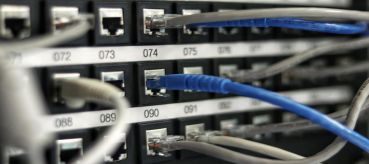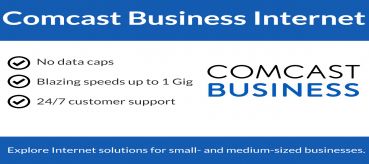What Type of Internet Connection You Should Get For Your Business Right Now?

With so many different types of Internet connections for businesses, the world of Internet connectivity can be confusing. It's all too easy to judge a provider's package pace or cost and conclude the rest is the same. Many people make this mistake and end up with a business Internet connection that does not meet their requirements. Bad application output, downtime, and unnecessary headaches are typically the end results.
Shared and dedicated networks are the two types of networks used for business Internet connections. There are various distinctions between these two network types, as well as the applications they serve and the value they provide.
Dedicated Networks
These are non-shared, highly secure networks that provide excellent efficiency and bandwidth ranges. Dedicated Internet connections, also known as Service Level Agreements, are planned and distributed to your site so that bandwidth is set and efficiency is guaranteed (SLA). Whether uploading or downloading data, bandwidth speeds are symmetrical and do not fluctuate. Regardless of the time of day, this guarantees reliable performance with low latency, packet loss, and jitter.
Larger companies with mission-critical applications that need high QoS or reliability use this type of Internet connection for business. VOIP, video, and cloud applications are all well supported by this link type. For these clients, service provider assistance is often prioritized, ensuring that the meantime to repair.
The only real drawback of dedicated networks is the high cost of business Internet connections. The cost can be high if the building is not already fiber-lit. Some companies equate the higher expense to the cost of an insurance policy. The dedicated service's SLA requires credits for every outage lasting longer than a few minutes per month. This offers further confidence that any prolonged outage would result in financial losses for the provider. Employee downtime and reduced efficiency for even an hour would almost definitely cost you far more than the money saved by using a shared network service.
There are a few different types of dedicated Internet connection options:
1. Wireless
2. Fiber
3. Copper
Shared Network
Due to its low cost, high download rates, and widespread availability, this is the most popular form of business Internet access. Small companies, retail stores, and larger entities usually use these forms of Internet links as backup connectivity. There isn't much of a difference between these links and a home Internet service. It's essentially the same service with the addition of the word "business."
You share the bandwidth of a single network link at the provider's local node/box with other users in the region on a shared network. Since this bandwidth is shared, speeds can differ based on the total load on the link. Latency, packet loss, and jitter can all differ based on network performance.
This is a significant drawback of these types of business Internet networks, as they have the ability to interrupt many essential applications such as VOIP, video, and cloud apps. Asymmetrical business Internet connections are popular, with fast download speeds but slow upload speeds. Wide emails, directories, streaming, and data backup can all be seriously hindered or made impossible.
Then there's the question of response time and reliability. Shared networks are not intended to operate at the same level as dedicated networks. As a result, these networks are vulnerable to outages that can last anywhere from hours to days. Since shared network outages are not given the same priority as dedicated network outages, recovery times are often prolonged. Since there are no efficiency or reliability assurances, this type of business Internet connection is often known as a "best-effort" service.
The most common types of shared network connections are:
1. DSL
2. Cable
3. Shared Fiber
4. Wireless
What kind of Internet connection should I get for my business?
A few considerations must be considered in order to decide the required type of business Internet connection:
The first consideration is your budget; if the cost is your only consideration and your budget is small, a shared network connection is really your only option. If your company's needs are restricted to Internet surfing, email, and basic software, and you're willing to put up with some downtime and performance problems, a shared service would suffice.
If you have mission-critical apps like VOIP, video, cloud, or other mission-critical apps, however, you must consider more than just cost. When you factor in issues like downtime and results, the decision becomes obvious. The only viable alternative for addressing those needs and concerns is a dedicated connection. When it comes to selecting the right type of Internet connection for business, budget, software, and desired output are all important considerations.
Related Posts
Wed, Apr 22, 2020 11:34 PM
Find Verizon Internet for Business Near You!
Verizon provides Internet for business in more than 40 states in the US, speeds are limited to 15 Mbps, and many businesses will need more juice. If you're in the Northeast, you can enjoy high-speed Internet via Verizon's FiOS. This is ideal for businesses that need high speeds, such as restaurants, hotels, medical facilities, hospitals, schools, and other businesses.
Thu, Apr 23, 2020 12:00 AM
5 Best Small Business Internet Service Providers (2021)
The following Internet Service Providers are not listed in any particular order, but we have ranked these five companies as worthwhile due to some key factors such as speed, reliability, cost, and overall customer satisfaction.
Mon, Apr 20, 2020 11:13 PM
Business Internet Guides for Entrepreneurs
Small businesses need to grow, but how big should your business become before you buy it online? Whether you started out as a sideshow or a brick-and-mortar business, successful small businesses are finding it increasingly difficult to decide when to shell out money for an Internet business.
Thu, Apr 23, 2020 11:52 PM
Why Business Internet is More Expensive Than Residential Internet
This question is asked so often today that it seems worth explaining, but here are 5 reasons why business Internet is more expensive than Residential Internet packages.
Fri, Apr 24, 2020 5:17 AM
Comcast Internet For Business: Internet, Phone, TV, and Other Solutions for your Business.
Comcast Business is US largest cable provider for small and medium-sized businesses and has become a force in the market, recognized by leading industry over the past two years as one of the fastest-growing providers of high-speed broadband to business customers




